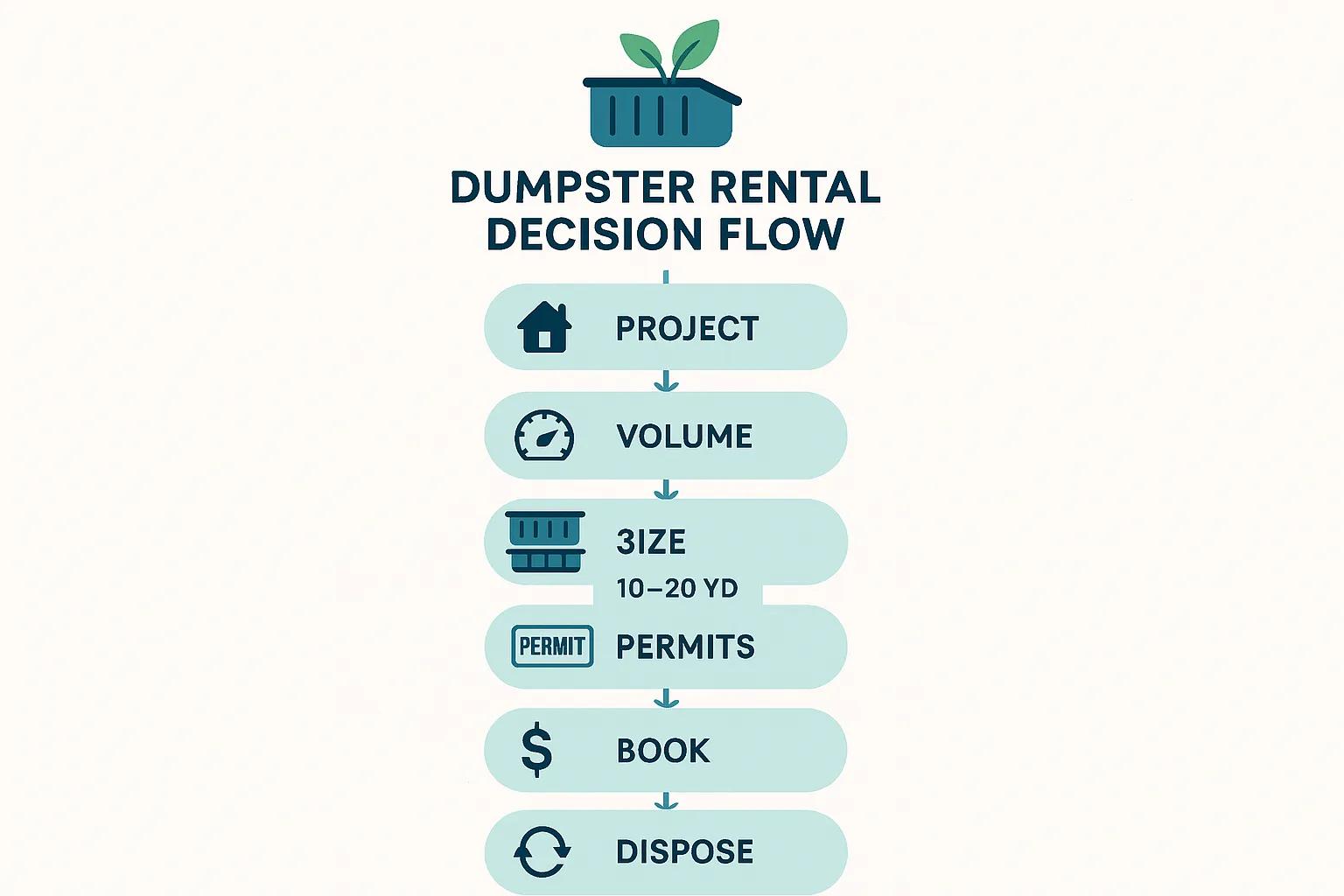
Hotel Waste Management Solutions: Reducing Environmental Impact on Ecosystems

Hotel waste impacts ecosystems by introducing pollutants, disrupting habitats, and releasing greenhouse gases that stress biodiversity. This article explains how hotel refuse threatens natural environments, outlines sustainable practices for waste reduction, examines carbon-footprint mitigation strategies, highlights business benefits, explores National Waste’s tailored dumpster rental and reporting services , surveys emerging hospitality innovations, and details monitoring techniques to strengthen ongoing performance. By understanding the environmental impact of hotel waste and adopting proven solutions, hoteliers can improve operational efficiency, cut costs, and support ecosystem health across North America.
What Is the Environmental Impact of Hotel Waste on Ecosystems?
Hotel refuse poses a multifaceted threat to ecosystems by leaching toxins, emitting methane, and overwhelming landfill capacity, which collectively degrade habitat quality and accelerate climate change. Understanding these impacts forms the foundation for targeted waste management strategies .
United States Environmental Protection Agency (EPA), “Reducing Waste: What You Can Do” (2025)
[The Impact of Hotel Waste on Ecosystems]
Hotel waste, including chemical runoff and organic waste , can significantly disrupt aquatic ecosystems and contribute to greenhouse gas emissions . These emissions , particularly methane from landfills, exacerbate climate change and diminish biodiversity, highlighting the need for sustainable waste solutions within the hospitality industry.
How Does Hotel Waste Affect Natural Ecosystems and Biodiversity?
Hotel waste releases pollutants and organic materials that alter soil chemistry, contaminate waterways, and reduce habitat suitability for wildlife .
- Chemical runoff from cleaning supplies can disrupt aquatic ecosystems and kill sensitive species.
- Accumulated litter and plastics smother vegetation and entangle animals.
- Organic waste in landfills produces methane, a potent greenhouse gas that contributes to temperature rise.
These effects diminish species diversity and erode ecosystem resilience, driving the need for sustainable waste solutions .
What Are the Main Types of Waste Generated by Hotels?
Hotels produce a variety of refuse streams that each demand specific handling: hospitality
| Waste Stream | Primary Component | Impact |
|---|---|---|
| Food Waste | Uneaten meals, kitchen scraps | Methane emissions and nutrient overload in landfills |
| Plastic Waste | Single-use bottles, packaging | Wildlife ingestion, microplastic pollution |
| Paper & Cardboard | Guest literature, packaging | Deforestation pressure, landfill volume |
| Textiles & Linens | Towels, bedding | Water use for replacements, landfill mass |
| Hazardous Waste | Cleaning chemicals, batteries | Soil and water contamination |
Recognizing these categories enables hoteliers to prioritize diversion and recycling efforts effectively.
How Do Food Waste and Plastic Waste Contribute to Pollution and Carbon Emissions ?
Food and plastic waste drive pollution and greenhouse gases through distinct mechanisms that harm both climate and ecosystems. Food scraps decompose anaerobically in landfills, generating methane, while plastics persist for centuries, releasing toxins and microplastics into soils and waters. Mitigating these streams addresses nearly half of a hotel’s total waste footprint .
How Can Hotels Implement Sustainable Waste Management Practices?

Sustainable waste management combines reduction at the source, material diversion, and responsible disposal to minimize environmental harm and resource use. Hotels can adopt integrated practices that improve efficiency and guest satisfaction. sustainable waste management .
What Are Effective Strategies for Reducing Food Waste in Hotels?
Reducing food waste enhances kitchen efficiency and cuts disposal costs while lowering methane emissions .
- Conduct waste audits to quantify plate waste and identify high-loss menu items.
- Optimize procurement and portioning by forecasting demand and adjusting buffet volumes.
- Partner with local charities to donate surplus edible food before spoilage.
The Sustainable Hospitality Alliance , “Waste Management Guidance” (2023)
[ Sustainable Waste Management Practices in Hospitality ]
Implementing waste reduction strategies, such as optimizing procurement and partnering with local charities to donate surplus food, can significantly reduce a hotel’s environmental footprint. These practices align with broader sustainability goals and promote a circular flow of materials, enhancing operational efficiency and guest satisfaction.
How Can Hotels Reduce Plastic Waste Through Recycling and Alternatives?
Plastic waste reduction preserves ecosystems and supports eco-minded guests by replacing single-use items with durable or compostable options .
- Install bulk amenity dispensers for soaps and shampoos instead of individual bottles.
- Offer refillable water stations with branded reusable bottles, reducing bottled-water purchases.
- Implement on-site sorting bins and partner with recyclers to reclaim PET, HDPE, and PP plastics.
What Role Does Staff Training and Guest Engagement Play in Waste Reduction?
Training employees and engaging guests fosters a culture of waste awareness that sustains long-term improvements.
- Staff training : Teach proper sorting procedures, composting protocols, and resource-conservation practices.
- Guest communications : Use signage and in-room materials to encourage towel reuse and responsible disposal.
- Incentive programs : Reward teams and guests for meeting diversion targets through recognition or discounts.
How Does Efficient Hotel Waste Management Reduce Carbon Footprint and Landfill Waste?
Efficient waste management cuts greenhouse-gas emissions and conserves resources by prioritizing diversion, recycling, and energy recovery over landfill disposal. Integrating these approaches lowers a hotel’s overall carbon footprint while meeting regulatory requirements. Efficient waste management is essential for sustainable practices.
What Are the Benefits of Waste Diversion and Waste-to- Energy Solutions?
Hotels can achieve significant environmental gains by diverting waste streams and harnessing residuals for energy production.
| Solution | Benefit | Environmental Outcome |
|---|---|---|
| Organics Composting | Reduces methane from landfills | Lowers greenhouse-gas emissions |
| Recycling Programs | Recovers materials for reuse | Conserves raw resources |
| Waste-to-Energy Plants | Converts non-recyclables to power | Offsets fossil fuel-based electricity |
How Is Hotel Carbon Footprint Measured and Reported?
Carbon footprints quantify greenhouse-gas emissions from energy , water, and waste activities to guide reduction efforts. Hotels use: waste management for hotels .
- Hotel Carbon Measurement Initiative (HCMI) for standardized waste-emission factors.
- Hotel Water Measurement Initiative (HWMI) to account for wastewater-related energy use.
- Cornell Hotel Sustainability Benchmarking Index (CHSB) to compare performance across properties.
How Can Waste Transportation and Logistics Impact Carbon Emissions ?
Transport distances, truck efficiency, and routing strategies influence total emissions from waste collection. Optimizing logistics by consolidating multi-site pickups and utilizing low-emission vehicles reduces fuel use and associated CO₂ output.
What Are the Business Benefits of Sustainable Waste Management for Hotels?

Embracing sustainable waste practices delivers tangible cost savings, operational improvements, and enhanced brand reputation, creating a competitive advantage in the hospitality market.
How Does Waste Reduction Lead to Cost Savings and Operational Efficiency?
- Negotiated rates for lower-volume pickups reduce hauling expenses.
- Reduced waste handling decreases labor hours for bin maintenance.
- Fewer supply orders cut procurement and storage costs.
Efficient waste profiles translate into stronger profit margins and resource allocation.
How Does Sustainability Improve Hotel Brand Image and Guest Loyalty?
Eco-conscious travelers seek accommodations that demonstrate environmental stewardship. By promoting visible recycling stations, composting efforts, and sustainable procurement, hotels strengthen guest loyalty , earn positive reviews, and attract new business.
What Regulatory and Compliance Benefits Do Hotels Gain from Sustainable Waste Practices?
Adhering to waste-minimization regulations and green-building standards—such as LEED certification and corporate goals like Marriott’s 2025 landfill and food-waste targets—ensures legal compliance, avoids fines, and can unlock tax incentives for environmental performance.
How Does National Waste Provide Tailored Waste Management Solutions for Hotels?
National Waste specializes in scalable dumpster rental and comprehensive services designed for multi-location hospitality businesses across North America, enabling consistent sustainability outcomes and streamlined operations.
What Dumpster Rental Options Are Available for Managing Hotel Waste Streams?
- 2–6 yard bins for back-of-house sorting of recyclables and compostables.
- 10–20 yard roll-offs for bulk cardboard and linens.
- 30–40 yard containers for consolidated general refuse across multiple sites.
How Does National Waste Support Recycling and Organic Waste Composting Programs?
National Waste facilitates end-to-end recycling and organics diversion by providing color-coded bins, curbside pickup, and partnerships with certified recyclers and composters. Dedicated collections for plastic, paper, glass, and food scraps ensure high diversion rates and clear reporting.
How Does National Waste Facilitate Data-Driven Waste Audits and Sustainability Reporting?
Through digital waste-audit tools and customized dashboards, National Waste tracks volume by stream, benchmarks performance against industry standards, and generates regular sustainability reports compliant with HCMI, HWMI, and CHSB frameworks. This data empowers hoteliers to set targets, monitor progress, and communicate successes.
What Are Emerging Trends and Innovations in Hospitality Waste Management?
Innovations in technology and collaboration are accelerating hotel sustainability by enhancing transparency, efficiency, and circular-economy adoption.
How Are Smart Waste Tracking Systems Enhancing Hotel Sustainability?
IoT-enabled sensors and RFID tags on bins provide real-time fill-level data, enabling optimized pickup frequencies and route planning that reduce operational costs and carbon emissions from transport vehicles.
What Circular Economy Approaches Are Hotels Adopting for Waste Reduction?
Hotels are embracing circular-economy principles by repurposing surplus textiles, partnering with manufacturers for amenity refill programs, and collaborating with local upcycling initiatives to convert discarded materials into new products, closing the resource loop.
How Are Industry Initiatives Like Sustainable Hospitality Alliance and Clean the World Driving Change?
Organizations such as the Sustainable Hospitality Alliance set best practices and measurement tools for carbon, water, and waste, while Clean the World repurposes used soap and amenities to improve hygiene in underserved communities—amplifying impact through sector-wide collaboration .
How Can Hotels Monitor and Improve Their Waste Management Performance Over Time?
Ongoing measurement and continuous improvement ensure that waste-reduction gains are sustained and enhanced through structured feedback loops.
What Are Best Practices for Conducting Hotel Waste Audits and Data Collection?
A robust audit combines physical waste characterization, volume tracking, and staff interviews to identify inefficiencies. Standard steps include:
- Define audit scope by selecting representative outlets (kitchen, housekeeping, events).
- Quantify waste volumes over a fixed period, sorted by stream.
- Analyze results to prioritize high-impact reduction opportunities.
Regular audits reveal trends and guide targeted interventions .
How Can Hotels Use Sustainability Benchmarks and Reporting Tools Effectively?
By integrating HCMI, HWMI, and CHSB data into centralized reporting platforms, hotels can compare performance year over year, against peer groups, and against corporate targets—fostering accountability and continuous goal refinement .
How Does Ongoing Staff Training and Guest Engagement Support Long-Term Waste Reduction?
Reinforcing waste protocols through periodic training refreshers, performance dashboards, and guest feedback mechanisms embeds sustainable habits into daily operations. Engaged teams and informed guests become advocates for reducing waste , ensuring that achieved gains become permanent.
Hotels that understand and address the environmental impact of their waste streams can protect ecosystems, cut costs, and enhance guest satisfaction. Sustainable waste management is a practical pathway to measurable carbon-footprint reductions and stronger brand reputation. National Waste’s specialized dumpster rental, recycling programs, and data-driven audits offer hospitality operators the tools they need to achieve lasting environmental and operational excellence.



